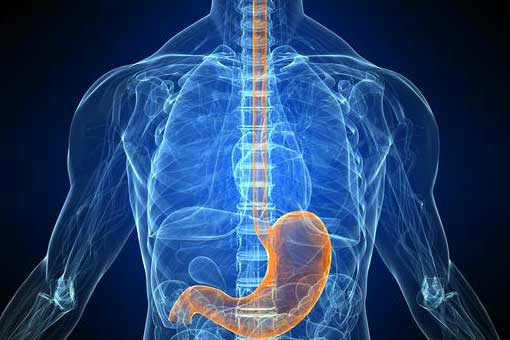Reflux, Heartburn and Acid Reflux
What is a Reflux, Heartburn & Acid Reflux?
“Reflux” or “Gastro oesophageal reflux disease” is a very common disorder usually causing ”indigestion” or “heartburn” (or heart burn). It is a chronic disease that occurs when the lower oesophageal sphincter does not close properly and stomach contents refluxes into the oesophagus.
Normally, the oesophagus (gullet) carries food from the mouth to the stomach. The lower oesophageal sphincter is a ring of muscle at the bottom of the oesophagus that acts like a valve between the oesophagus and stomach. This valve is designed to prevent stomach content “refluxing” back up into the oesophagus.
When refluxed stomach acid contacts the lining of the oesophagus, it causes a burning sensation in the chest or throat called “heartburn”.
Occasional heartburn is common but does not necessarily mean you have GORD.
What is GORD?
Heartburn that occurs more than twice a week may be considered GORD, and it can eventually lead to more serious health problems. Anyone, including infants, children, and pregnant women, can have GORD.
Reflux Symptoms (Heartburn Symptoms)
The main symptoms are persistent heartburn and acid regurgitation. Some people have GORD without heartburn. Instead, they experience pain in the chest, nausea, hoarseness in the morning, or trouble swallowing. You may feel like you have food stuck in your throat or like you are choking or your throat is tight.
Some people experience frank regurgitation of food or fluid, especially when lying down or stooping forward. This can be dangerous, particularly at night when sleeping since refluxed material may enter the windpipe and lungs. This may result in coughing or choking fits.
Persistent symptoms like these should be assessed with gastroscopy for accurate diagnosis rather than simply medicating.
Causes of Relux and Heartburn
Causes of reflux include:
- Hiatus Hernia
- Alcohol use
- Overweight / Obesity
- Pregnancy
- Smoking
Also, certain food and drinks may make reflux worse or bring on bouts of reflux or heartburn:
- alcohol
- caffeine
- chocolate
- fatty foods
- bananas
- tomato
- spicy foods
- cucumbers
- peppermint / spearmint
Complications of reflux
Acid reflux may cause inflammation and ulceration of the oesophagus (oesophagitis) causing pain and swallowing problems. Bleeding and anaemia may occur. Eventually this can lead to scarring and stricture formation.
Sometimes a change in the lining of the oesophagus can occur. This is known as “Barretts” oesophagus. This change is a risk factor for cancer of the oesophagus and needs to be carefully evaluated by a specialist.
Diagnosis of reflux
Often the nature of the symptoms may suggest the possibility of reflux. Response to medication may help with the diagnostic process but evaluation by a specialist is advisable if symptoms are persistent.
Gastroscopy (using a flexible telescope to examine the oesophagus and stomach) is a simple day procedure performed with light anaesthetic that is very useful for examining for evidence of reflux and evaluating the health of the oesophagus.
Sometimes special tests studying the function of the oesophagus (manometry) and degree of acid reflux (24hr pH studies) may be required. Please remember to ask your surgeon if he wishes to undertake these tests off your normal acid suppressants.
Occasionally X- rays (barium swallows) may also be used to assess the oesophagus.
Reflux Treatment – Lifestyle Modification
A combination of simple dietary changes and lifestyle adjustments may help in controlling reflux symptoms. Avoid (or use only in moderation) foods and substances that increase reflux of acid into the oesophagus, such as:
- alcohol
- nicotine (cigarettes)
- caffeine / chocolate
- spicy foods / tomatoes
- fatty foods
- bananas
- cucumbers
- peppermint
This is not an exhaustive list. You may find other foods trouble you. Avoid those things that make your symptoms worse.
Other things that can help:
- Eat smaller, more frequent meals and do not eat within 2-3 hours of bedtime.
- Avoid bending, stooping, abdominal exercises, tight belts, and girdles all of which increase abdominal pressure and cause reflux.
- If overweight, lose weight. Obesity also increases abdominal pressure.
- Elevate the head of the bed 8 to 10 inches by putting pillows or a wedge under the upper part of the mattress. Gravity then helps keep stomach acid out of the oesophagus while sleeping.
When these measures are insufficient, medication or surgery may be required.

MELBOURNE LOCATIONS
BULLEEN
Suite 3/195 Thompsons Rd,
Bulleen, VIC 3105
Tel: (03) 9852 3777
Fax: (03) 9852 0014
BUNDOORA
1a/445 Grimshaw St,
Bundoora, VIC 3083
Tel: (03) 9852 3777
Fax: (03) 9852 0014
MARIBYRNONG
Suite 104, 1 Thomas Holmes St,
Maribyrnong, VIC 3032






